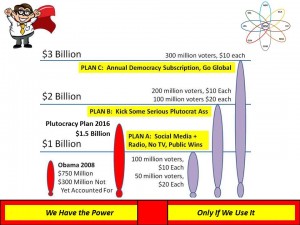Jean Lievens: Want to Hurt Wall Street? Displace the Lending Industry with BitCoin and P2P Lending!
Advanced Cyber/IO, Civil Society, Commerce, Commercial Intelligence, Ethics, Money
This bitcoin alternative is a threat to Wall Street
Peer-to-peer loans imperil banks, and cryptocurrencies may finish the job
EXTRACT
Digital currencies circumvent the fees and roadblocks to access that come with traditional financial services. The possibilities, especially in the underdeveloped world, are enormous. As much as $9.6 trillion in assets locked out of the global economy could be freed up, according to the International Monetary Fund.
Michel Bauwens: Transitioning to a Commons-Based Society
Crowd-Sourcing, Culture, Design, Economics/True Cost, Education, Governance, Innovation, Knowledge, Money, P2P / Panarchy, Politics, Resilience, Transparency
Transitioning to a Commons-Based Society
Background on the FLOK Project
Michel Bauwens:
The National Plan of Ecuador recognizes and stresses that the global transformation towards knowledge-based societies and economies requires a new form for the creation and distribution of value in society. The National Plan's central concept is the achievement of ‘Buen Vivir' (Sumak Kawsay) or ‘good living'; but good living is impossible without the availability of ‘good knowledge', i.e. ‘Buen Conocer' (‘Sumak Yachay'). The third national plan for 2013-2017 explicitly calls for a open-commons based knowledge society[1].
President Correa himself exhorted young people to achieve and fight for this open knowledge society[2].
The FLOK Society is a joint research effort by the Coordinating Ministry of Knowledge and Human Talent, the SENESCYT (Secretaría Nacional de Educación Superior, Ciencia, Tecnología e Innovación) and the IAEN (Instituto de Altos Estudios del Estado) to develop transition and policy proposals to achieve such an open commons-based knowledge society.
FLOK refers to:
Continue reading “Michel Bauwens: Transitioning to a Commons-Based Society”
Jean Lievens: Bitcoin vs. Litecoin vs. Peercoin vs. Ripple vs. Namecoin
Economics/True Cost, Money
Bitcoin vs. Litecoin vs. Peercoin vs. Ripple vs. Namecoin
While many are still being turned on to the perks of Bitcoin as a speculative asset, platform, and currency, there are other players in the game. Here is a brief look at how these cryptocurrencies stack up in terms of features. Also, if you're interested in the rest of the top 10, be sure to check out Quarkcoin vs. Megacoin vs. Protoshares vs. Worldcoin vs. Feathercoin.
Rickard Falkvinge: BitCoin Bank “Loses” One Billion Dollars — Complete Knowledge Lacking
Money
Cryptocurrency: So it’s more or less official: MtGox, once the world’s largest bitcoin exchange, has died and taken all its holdings with it to the grave. This follows a long string of evasive statements, silence, and strange behavior from the exchange, particularly including bad customer service. The net is full of horror stories of people having lost their money, and claims of a “hack against the vault” are not credible in the slightest – here’s why.
Jean Lievens: Can the Internet Democratize Capitalism?
Advanced Cyber/IO, Civil Society, Cultural Intelligence, Ethics, Government, Money
Can the Internet Democratize Capitalism?
Yanis Varoufakis
International Policy Digest,
Technological fixes to time-honoured problems are all the rage these days.
Bitcoin is meant to fix money, social media are seen as an antidote to Rupert Murdoch and assorted tyrants, networked robots are to help countries like Japan deal with demographic declines etc. Perhaps the largest claim is that the Internet has helped (or is about to help) democratize capitalism. Ten years ago that claim struck me as both fascinating and dubious. So, I sat down and wrote an article about it (circa 2004). Its gist: The Internet is a wonderful leveller.
But democracy requires a great deal more than mere ‘levelling.’ Primarily, it requires political institutions that enable the economically weak to have a decisive say on policy against the interests of the rich and powerful. Ten years later, I am re-visiting this question, under the shadow of a global crisis that made it even harder to convert an e’Demos into genuine e’Democracy. What follows is an updated version of the original paper.
The Internet’s toughest assignment: To put Demos back into Democracy
Continue reading “Jean Lievens: Can the Internet Democratize Capitalism?”
Rickard Falkvinge: Bitcoin did not crash – MtGox was Sloppy with its Code Updates
Money
Cryptocurrency: Yesterday, the bitcoin exchange MtGox – riddled by problems – issued a press release saying the bitcoin protocol was to blame for its ongoing problems. That statement, which caused the markets to nosedive temporarily, is outright false. The problem is, and was, bad code hygiene in the MtGox exchange itself. Here are the details.
Yesterday, when MtGox blamed “transaction malleability” as the cause of MtGox’ problems, implying that the problems at MtGox affected all exchanges and everything bitcoin, that was a sign of a very elastic relationship with facts. It’s true that transaction malleability was a factor, but not nearly in the way that MtGox implied. (We’ll be returning to what the “malleability” is.)
Here’s the real problem: MtGox is running its own homebuilt bitcoin software, and has not cared to update and upgrade that software along with the developments of the bitcoin protocol. Recently, after a very long grace period, the bitcoin protocol tightened slightly in order to disallow unnecessary information in transaction records, and did this to fix the malleability problem that MtGox blamed.
So the problem of malleability remained at MtGox, while having been fixed in the rest of the world. This – the discrepancy itself – was the root cause of the problem, because it meant that MtGox started issuing invalid transaction records for bitcoin withdrawals. Obviously, they were rejected by the bitcoin network.
Let me explain in a bit more detail.
Continue reading “Rickard Falkvinge: Bitcoin did not crash – MtGox was Sloppy with its Code Updates”


